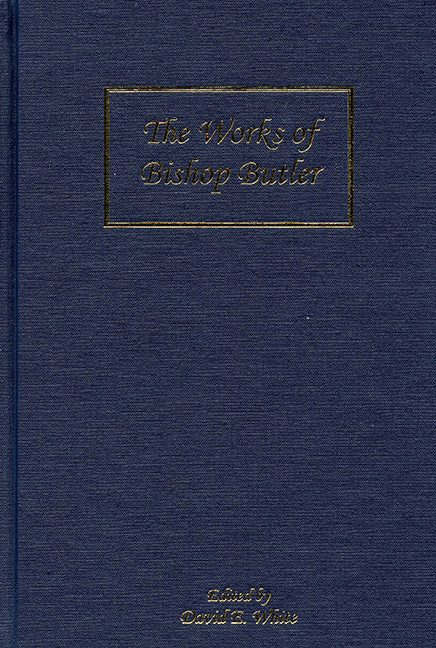Book contents
- Frontmatter
- Contents
- Acknowledgments
- Introduction
- A Note on the Text
- Part One Correspondence with Samuel Clarke
- Part Two Fifteen Sermons Preached at the Rolls Chapel
- Part Three The Analogy of Religion, Natural and Revealed, to the Constitution and Course of Nature
- Part Four Six Sermons Preached upon Public Occasions
- Part Five The Durham Charge
- Part Six Fragments
- Editorial Notes
- Bibliography
- Index
Part Two - Fifteen Sermons Preached at the Rolls Chapel
Published online by Cambridge University Press: 11 May 2017
- Frontmatter
- Contents
- Acknowledgments
- Introduction
- A Note on the Text
- Part One Correspondence with Samuel Clarke
- Part Two Fifteen Sermons Preached at the Rolls Chapel
- Part Three The Analogy of Religion, Natural and Revealed, to the Constitution and Course of Nature
- Part Four Six Sermons Preached upon Public Occasions
- Part Five The Durham Charge
- Part Six Fragments
- Editorial Notes
- Bibliography
- Index
Summary
[1] Though ’tis scarce possible to avoid judging, in some way or other, of almost every thing which offers itself to one's thoughts; yet ’tis certain that many persons, from different causes, never exercise their judgment, upon what comes before them, in the way of determining whether it be conclusive and holds. They are perhaps entertained with some things, not so with others; they like and they dislike: but whether that which is proposed to be made out, be really made out or not; whether a matter be stated according to the real truth of the case, seems to the generality of people merely a circumstance of no consideration at all. Arguments are often wanted for some accidental purpose: but proof as such is what they never want for themselves; for their own satisfaction of mind, or conduct in life. Not to mention the multitudes who read merely for the sake of talking, or to qualifie themselves for the world, or some such kind of reasons; there are, even of the few who read for their own entertainment, and have a real curiosity to see what is said, several, which is prodigious, who have no sort of curiosity to see what is true: I say, curiosity; because ’tis too obvious to be mentioned, how much that religious and sacred attention, which is due to truth, and to the important question, what is the rule of life, is lost out of the world.
[2] For the sake of this whole class of readers, for they are of different capacities, different kinds, and get into this way from different occasions, I have often wished, that it had been the custom to lay before people nothing in matters of argument but premises, and leave them to draw conclusions themselves; which, though it could not be done in all cases, might in many.
[3] The great number of books and papers of amusement, which, of one kind or another, daily come in one's way, have in part occasioned, and most perfectly fall in with and humour, this idle way of reading and considering things. By this means, time even in solitude is happily got rid of, without the pain of attention: neither is any part of it more put to the account of idleness, one can scarce forbear saying, is spent with less thought, than great part of that, which is spent in reading.
- Type
- Chapter
- Information
- The Works of Bishop Butler , pp. 33 - 146Publisher: Boydell & BrewerPrint publication year: 2006

